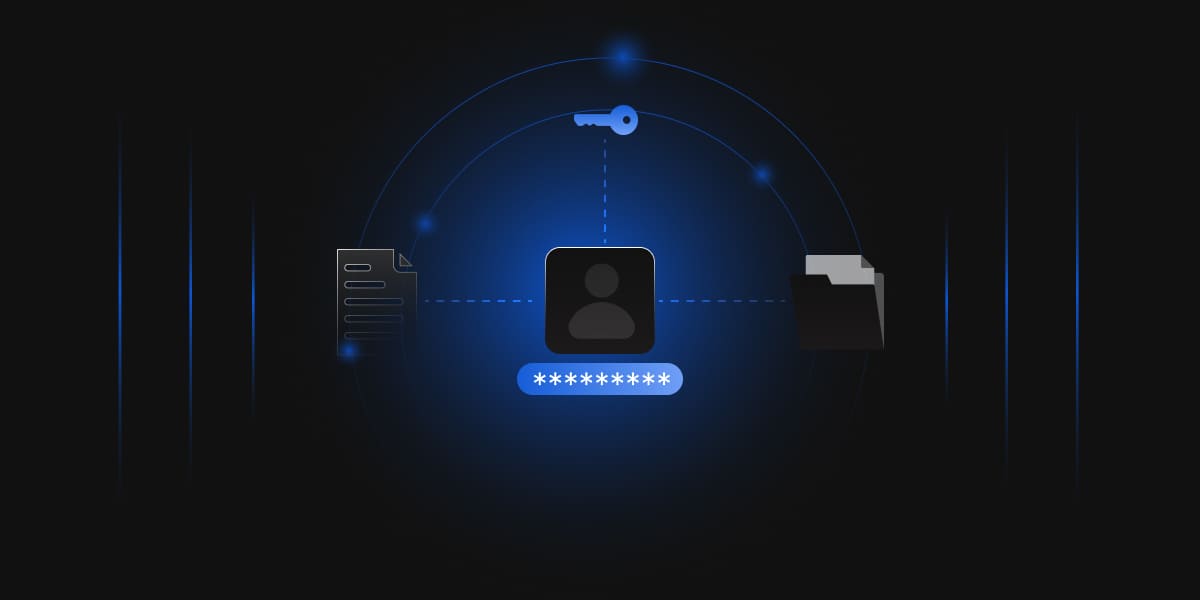Education Center, Encryption Basics
What are Secrets?

Education Center, Encryption Basics

Secrets are like the keys to a vault in cybersecurity and data protection. They are privileged credentials that serve as the gateway to unlock valuable resources or confidential information. In this article, we’ll delve deeper into the significance of secrets, their role in security practices, and how they safeguard sensitive data.
Secrets encompass confidential information, such as passwords, encryption keys, API tokens, and digital certificates. These concealed pieces of data are vital for authenticating and authorizing access to secure resources.
Secrets are pivotal in two critical processes: authentication and authorization.
This is proving your identity when accessing a protected resource. You present the correct secret, such as a password or API token. If your secret matches the expected value, you’re in.
Once authenticated, the system checks what actions you can perform. Your permissions are tied to specific secrets. For instance, one password may grant you read-only access, while another might give you full control.
Secrets act as the guardians of sensitive data. They’re used to encrypt and decrypt information, keeping it safe from prying eyes. Without the right secret, the data remains a cryptic puzzle.
In times of security breaches, secrets are often the epicentre of concern. If secrets fall into the wrong hands, attackers can gain unauthorized access. Hence, organizations need protocols for responding to such incidents, including revoking and replacing compromised secrets.
Tools for managing secrets can solve these problems and stop unauthorized people from getting to important information. This makes it less likely that there will be problems like data leaks, stealing information, or someone messing with important company data and personal information. These issues can really hurt a company by causing them to lose money, damaging their reputation, getting into legal trouble, and facing fines from regulators.
Secret management tools help companies keep important data, like passwords and encryption keys, safe. They can also handle things like SSH keys, API keys, database credentials, tokens, and certificates, including TLS/SSL certificates and private certificates. These tools can securely save, send, and handle digital credentials.
Companies use secret management tools to control all their secrets for their entire IT system from one place. These tools lower the risks that come with managing secrets in the wrong way, like putting secrets directly into scripts, using default passwords, sharing passwords manually, and not changing credentials regularly.
Managing secrets at scale can be daunting. Many organizations rely on secret management tools and services that provide centralized storage, access controls, and auditing capabilities. Examples of these tools include HashiCorp Vault, AWS Secrets Manager, and Azure Key Vault.
In conclusion, secrets are the linchpin of security measures, protecting valuable resources and data by verifying identity and permissions. Properly handling and safeguarding secrets are imperative for maintaining the security and integrity of systems and data. So, remember, in cybersecurity, secrets are the keys to success.
With a strong focus on Encryption Advisory services and decades of consulting expertise, Encryption Consulting offers a range of cryptographic solutions. Among these, PKI as a Service (PKIaaS) stands out, providing round-the-clock support to clients for any issues related to their PKI environment. This comprehensive approach enhances security, ensuring organizations remain resilient against potential misconfigurations in their encryption setups.